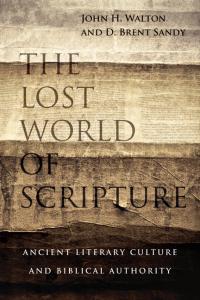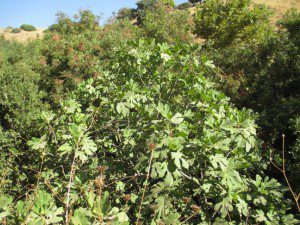 When do differences in detail cast doubt on the whole story?
When do differences in detail cast doubt on the whole story?
I’ve been reading through both The Lost World of Scripture by John Walton and Brent Sandy and The Lost World of the Flood by Tremper Longman and John Walton … fascinating and thought provoking books. Last week I posted the first book with a provocative title – The Word of God is Not a Book. I expected the post to raise some eyebrows and generate a reaction. I was not disappointed. This is a conversation we need to have. One commenter was explicit:
In Sunday School I have been known to challenge the class with the following question… “The Bible contains the Word of God. True or False?” Then I explain that if it only “contains” the Word of God we are hard pressed to identify those parts that are the Word of God vs. those that aren’t! On the contrary, I tell them, “the Bible is the Word of God”!
Although the commenter and I likely agree on quite a lot when it comes to the essence of Scripture, I tend to disagree with this statement and lean towards “contains” rather than “is.” The claim that the Bible “is” the word of God doesn’t really solve any of our problems. If the Bible “is” the word of God, then we must work hard to rationalize away the various contradictions, differences in perspectives, and rhetorical hyperbole or symbolic language. After all, if the Bible “is” the word of God and God does not lie, then every statement must be precisely true. (At least in the original manuscripts … whatever this means.)
 Walton and Sandy (The Lost World of Scripture) point out a number of variations in the Gospels (pp. 146-148). Among them, Matthew and Luke differ on the order of Jesus’ three temptations (Mt 4:5; Lk 4:9), the variation in wording when God speaks after the baptism of Jesus and again after the transfiguration (“you are my son” or “this is my son”, for example), and the variation in the wording of the placard over Jesus at the crucifixion. Another example that confronted me when listening to the Gospels several years back is the withering of the fig tree. Did it wither as they watched or was it withered the next day? (Mt. 21:19-20 vs. Mk 11:12-14, 20-21) The genealogies Matthew and Luke give for Jesus cannot both be right. If the Bible “is” the word of God, these variations matter. If it contains and faithfully conveys the word of God, they don’t. It is the essence of the message – God’s relationship with his people and the Gospel of Jesus Christ – that matters.
Walton and Sandy (The Lost World of Scripture) point out a number of variations in the Gospels (pp. 146-148). Among them, Matthew and Luke differ on the order of Jesus’ three temptations (Mt 4:5; Lk 4:9), the variation in wording when God speaks after the baptism of Jesus and again after the transfiguration (“you are my son” or “this is my son”, for example), and the variation in the wording of the placard over Jesus at the crucifixion. Another example that confronted me when listening to the Gospels several years back is the withering of the fig tree. Did it wither as they watched or was it withered the next day? (Mt. 21:19-20 vs. Mk 11:12-14, 20-21) The genealogies Matthew and Luke give for Jesus cannot both be right. If the Bible “is” the word of God, these variations matter. If it contains and faithfully conveys the word of God, they don’t. It is the essence of the message – God’s relationship with his people and the Gospel of Jesus Christ – that matters.
The Scripture that we have reflects the oral culture in which it originated. Among other things “the Evangelists felt free to rearrange the order of events to suit the points they were making.” (p. 148) With respect to the withered fig tree … either Matthew removed a day or Mark inserted a day … or at least, the oral traditions from which they derived their accounts removed or inserted a day.
The evidence then suggests that the gospel message preserved the essential essence of things Jesus and the disciples said and did. If there are variations in the written Gospels, it’s likely there were similar variations in the oral texts. It is safe to conclude that a precision of wording was not expected either in the oral transmission or the written records. …
…we may not have the exact words of Jesus, but we do have the essential word. The Gospels can be trusted as reliable representations of the words and deeds of Jesus. (p. 149)
The Word of God. The commenter quoted above was concerned that “…when an unbeliever reads the title “The Bible isn’t the Word of God” he or she will immediately say “exactly, end of discussion” and will not dig beyond that surface statement and I do not think that’s the intent of the author of this article.” The commenter is right, this is not my intent (and the title of the post was intentionally a little different). My intent, in fact, is to lower some barriers and allow people (believers and unbelievers alike) to dig deeper into the message of Scripture – the essential essence of things. At least in my secular and skeptical University community, the claim that the Bible “is” the word of God won’t convince anyone of anything. The unbeliever (or even questioning believer) says … what about this problem in scripture or that problem … and then simply dismisses the whole as not worth the effort.
When we step back and let the Bible tell the story, dig into and study the story. This can make an impact. We need to be immersed in the essential word and message of Scripture. We don’t really need to build fences and barriers to defend it. For me, personally, dropping the need to defend Scripture (and worry about the “problems”) and digging into the message has been the life and faith changing.
This week on my commute as I listened to Scripture (my habit every morning) I was struck by Paul writing to the church of the Thessalonians. “And we also thank God continually because, when you received the word of God, which you heard from us, you accepted it not as a human word, but as it actually is, the word of God, which is indeed at work in you who believe.”(1 Thess. 2:13) Paul uses the phrase “word of God” in a number of places in his letters, but as far as I have found, never to refer explicitly to Scripture. For Paul, the word of God was not a book … it was the essence of his message of Jesus Christ (the Living Word as the commenter pointed out).
For some, the claim that the Bible “contains” the Word of God may lead to the attempt to identify the Word of God and separate it from the rest.
For some, the claim that the Bible “is” the Word of God may lead to doubts and questions (it did for me) because of apparent inconsistencies.
What do you think?
One thing is certain. We read, listen to, and study Scripture to discover God and his intent for his creation. This message is faithfully conveyed by Scripture in the community of the church.
If you wish to contact me directly you may do so at rjs4mail [at] att.net.
If interested you can subscribe to a full text feed of my posts at Musings on Science and Theology.















